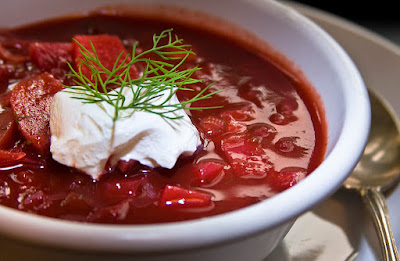Misleading labels should be banned
Opinion blog post
Imagine
yourself walking in the supermarket or grocery store. You’ll see aisle after
aisle of packaged food with various labels. You can almost feel them shouting
nonsense at you. You get attracted to them by the words “all natural” or “low
in fat” etc. , but what most people forget is that more than 50% of those
labels are misleading. In 2003, there was a study by the Costumers Association.
They found some foods branded as “light”, had up to seven times more fat then
those who branded as “low fat”. Nearly 59% of consumers have a hard time
reading nutrition labels. Surely I personally think that it is completely
unacceptable that this sort of things happen because they mislead costumers and
that is unfair.
In the
first place, the rules about labeling need to change. It is not strict enough,
the current rules are that you need to mention the ingredients but not the
exact quantities. That means that there is room for interpretation. In that
way, brands can lie about the quantity of fat and sugar. Some people say that
not al labels are false and that most of the brands are fair, but how can we
know what label is true and will not mislead the consumer? I am sure that if
brands would be honest about what’s in their food, you would be surprised. It
is true that you kind of have an idea of how much fat there is in a burger or
pizza, because it contains a lot of fat. On the other hand, when a brand says
that their pizza is “low in fat” people will believe it and forget that there’s
still some fat in it, sometimes even more.
Secondly,
we need to find solutions for this labeling problem. Professor Mike Rayner, an expert
in health of Oxford University came up with a new labeling system. This will
help the consumers to make healthy choices. Rayner wants a standardized
nutrition profile with stars on it. The stars will tell you the overall
healthiness of the food. For example, a 3 star food is less healthy than a 5
star food. It could be argued that you don’t have an exact idea about it because
they are stars and not numbers or percentages. However, I would like to point
out that it’s a standardized system and you will have a better view on the
situation.
In
conclusion, it’s unacceptable that brands mislead consumers with their labels.
Nowadays it’s hard to make sure you’re eating healthy or all natural. People
may not forget that not everything on the labels is correct. It is important to
keep reading the labels and to compare with other brands!
Can you trust food labels? (2015, December 30), Telegraph food
Retrieved from https://www.telegraph.co.uk/health-fitness/nutrition/can-you-trust-food-labels/
16 most misleading food labels.
Retrieved May 8, 2013, from Denny Deza
Interact website: https://www.health.com/health/gallery/0,,20599288,00.html


Hello! I´ve recently read your post and I liked it pretty much!
ReplyDeleteFirst of all you were able to create a situation where I was able to put myself into right at the beginning of the text.
I´m also of the opinion that the rules about labels should be changed, mainly because of the original misleading information by these labels.
I personally like the solution you gave by Professor Mike Rayner, which could maybe revoulutionize the way of labeling food products :)
All in all I liked your whole opinion post, great work! (though you used no photos)
Gianluca S.
I think you're right that misleading food labels should be banned from stores! It is indeed completely unacceptable and unfair. The government should do something about this. I agree with you about the fact that the rules about labelling should be more strict. But on the other hand, that will make it easier for other companies to counterfeit someone else’s product. I think that the labelling system of professor Mike Rayner might be a good solution but it's still too general, it should be more specific. Because even if a product is labelled 1 star, people will still eat the product because you don’t say what exactly is bad about the product. Maybe if you add numbers or a bit of information about the product, people would be more likely to actually think about what they’re eating. I hope people will start looking at labels more often after they read your blogpost.
ReplyDeleteAnneleen Van Aeken
Hey Rojin, I read your blogpost and I think you raised a really important topic!
ReplyDeleteIt's definitely not okay that the companies print facts on their etiquette that aren't true. I was really shocked by the fact that “light” products sometimes contain more sugar or fat than the normal products. I agree with you that something must be done against these misleading labels and Professor Mike Rayner's idea would be very useful as a first step.
Besides I noticed another formal thing, namely that I couldn't find your name at the beginning because it is written so small in the corner below the text. Maybe it would be preferable if you write your name in a larger font size directly under the text so that the readers directly see that the blog entry comes from you. ;-)
All in all you did a great job because you make people aware of the problem with the misleading labels very well and also mention a possible first solution for the problem.
Jana S.